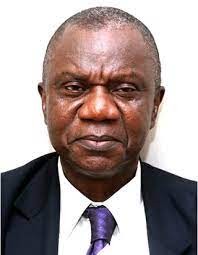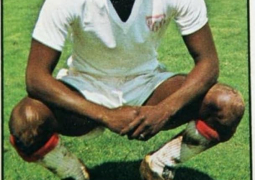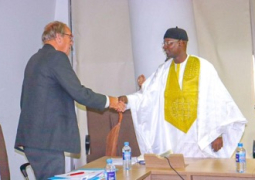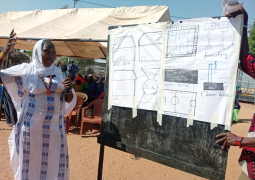
The one-day stakeholder engagement, presided over by the minister for Agriculture, Demba Sabally, was designed to take stock of progress registered, constraints, challenges and chart a way forward in pushing the lofty goals of the institute.
Declaring the session open, Dr. Demba Sabally outlined the importance of the meeting, reminding that as a country, no meaningful development can take place in the absence of improving agricultural productivity and cutting-edge research.
He maintained that research must lead the way to be able to identify technologies that are well adaptable, dependable, affordable and scalable to the different agroecology’s throughout the country.
Minister Sabally noted that despite the many challenges confronted NARI, they are still able to introduce high yielding crop varieties across the country.
He recalled that during the past rainy season many farmers suffered loss in yield resulting from intermittent dry spells.
Dr. Sabally observed that the number of field farmers that cultivated the groundnut varieties released by NARI had higher yield and acquired a good harvest as compared to farmers with the traditional nuts.
This, he said, calls for the need to provide more support to research and that the Ministry will endeavor to provide the much-needed support to allow NARI to continue the great work it is already doing.
In conclusion, Dr. Sabally hailed all their development partners for their tremendous contribution towards the nation’s endeavors to achieve food self-sufficiency.
Welcoming the gathering, Dr. Ernest Aubee, chairman Board of Directors of NARI, described the meeting as another bold step in reintroducing a key component of the NARB Act of 1993.
“During the ARREV, we will have the opportunity to know some of the very good work that NARI has been doing but with little or no publicity. Today’s meeting will answer the much-asked question what is NARI doing.”
He thus thanked the Agric Minister for appointing very experienced and professional board to provide strategic guidance and supervision to NARI.
“We equally appreciate the support provided by His Excellency President Adama Barrow for ensuring that NARI is a beneficiary of a bilateral programs.”
Dr. Aubee also spoke about the various agricultural research activities undertaken by researchers to be able to identify technologies that can contribute towards increased production and productivity as enshrined in the resilience focused National Development Plan.
“Among our objective is to ensure that technologies are subject to scrutiny by relevant agricultural stakeholders prior to dissemination to the farming community.”
NARI Board chair also highlighted the numerous achievements registered by the board and management these past years.
He indicated that the board has focused on three critical performance indicators: reform; results and delivery and impact.
The board, he said, was able to improve the governance structure of the institute by reviving the Board Technical committees and diversifying sources of funding and approving new partnerships with projects and development partners.
He made reference to the tremendous support rendered by their partners such as the International Center for Bio- Saline Agriculture, Korea Partnership for innovation in Agriculture KOPIA, South Carolina State University, Government of China, ECOWAS and all others.
NARI board chair also spoke about their resolve to undertake aggressive resources mobilisation in and outside the country in partnership with national and international organisations and to create a strong research -extension linkage.
Read Other Articles In National News




